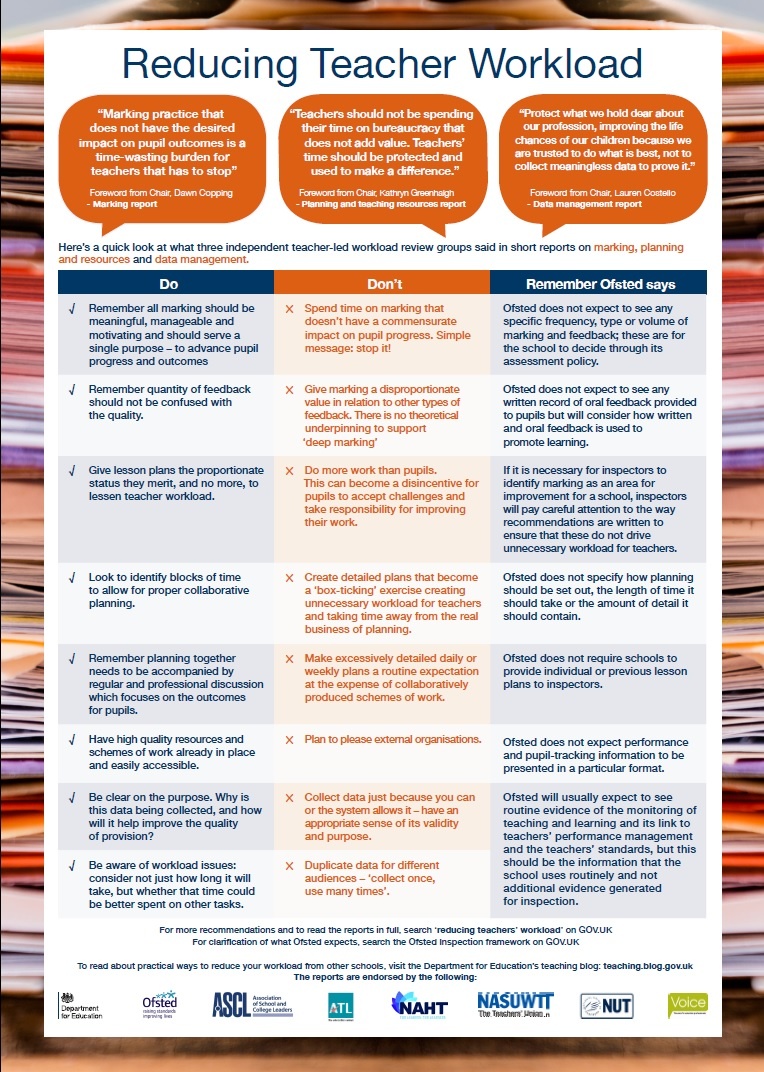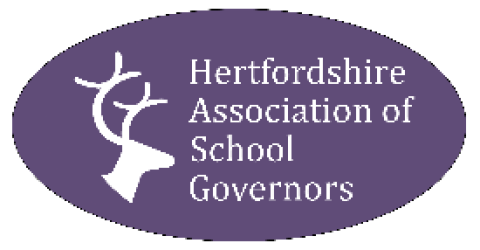 Reducing Teacher Workload
Reducing Teacher Workload
The Department for Education have provided an update on their policy towards reducing teacher workload. Lord Nash, Parliamentary Under Secretary of State for the School System, has issued the following letter introducing this:
Letter from Lord Nash
Dear Colleague,
REMOVING UNNECESSARY WORKLOAD FOR TEACHERS
We are committed to removing unnecessary workload in the teaching profession which takes people away from the task of helping our children and young people reach their potential. I wanted to thank you for your help so far. As a National Leader of Governance you can support governing boards to challenge Headteachers and senior leadership teams to address practice which leads to unnecessary teacher workload. We would like you to continue your work in aiding governing boards to remove unnecessary workload in the schools you support.
We know that workload is one of the main reasons that teachers give for considering leaving the profession and latest research published today shows that working hours are still too high. We have today published an action plan that provides an update about how we have been helping to remove unnecessary workload along with further activities we intend to undertake in the future. An important part of these actions is based around the three review group reports on eliminating unnecessary workload for teachers that convey important messages for all those involved in teaching, including governing boards. As I am sure you are aware, the groups were set up to address the three biggest concerns that teachers raised in the Department’s ‘Workload Challenge’ – marking, planning and resources, and data management – and their reports were published on 26 March 2016. You can access the reports here:
- Report from Marking Policy Review Group – https://www.gov.uk/government/publications/reducing-teacher-workload-marking-policy-review-group-report.
- Report from Planning and Resources Review Group – https://www.gov.uk/government/publications/reducing-teacher-workload-planning-and-resources-group-report.
- Report from Data Management Review Group – https://www.gov.uk/government/publications/reducing-teacher-workload-data-management-review-group-report.
The Chairs of the groups emphasise in their forewords that the reports include clear principles that can empower classroom teachers and school leaders to challenge unproductive practices. We are already hearing about how schools are doing this and we are publishing examples on our Teaching Blog. We would also appreciate your continued help in sharing the ‘reducing workload’ initiatives in the schools you support.
I should also be grateful if you would continue to use the recommendations in the reports, to support governing boards to review their expectations on Headteachers and senior leadership teams to be as effective and efficient as possible. To support schools to remove unnecessary workload we have produced a poster and pamphlet that summarise the reports to help stimulate discussion.
We would be pleased to share additional information and slide packs that can be adapted to support your work further. If you would like a copy of the additional information or you are able to share examples of your work and school practice, please contact the Department by email at: workload.solutions@nulleducation.gov.uk.
We know that unnecessary workload is complex and that the root causes cannot be fixed overnight but, by continuing to work together, we can make sure that teachers will be able to concentrate on helping their pupils achieve their goals rather than on bureaucracy and paperwork.
JOHN NASH


